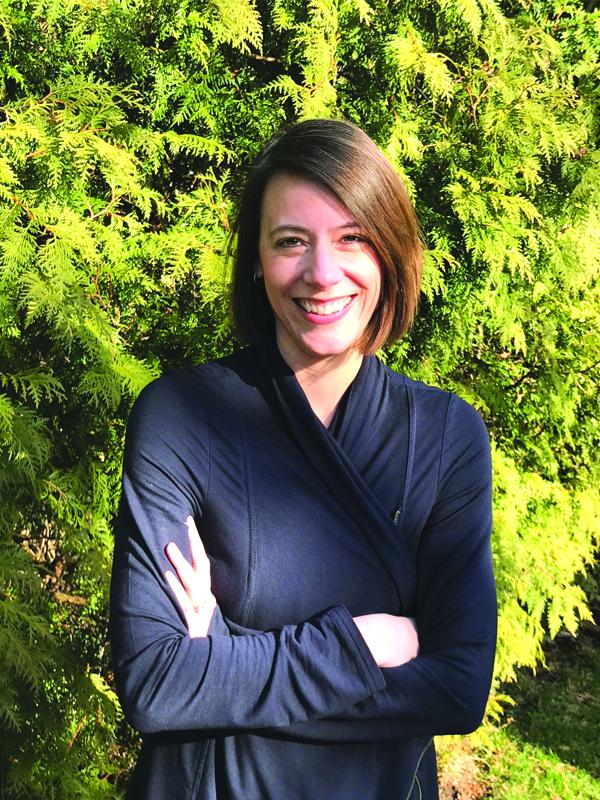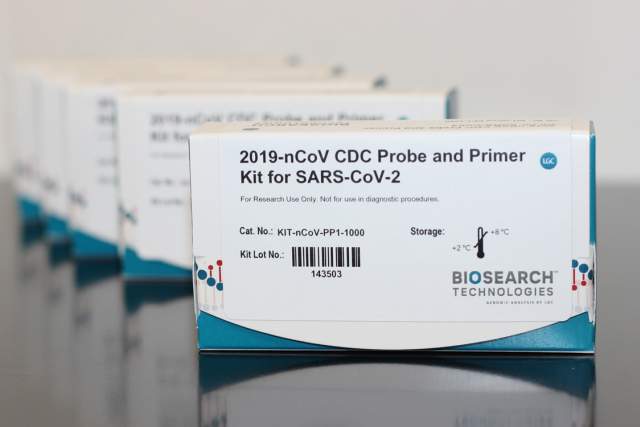During these tough days, I’m finding solace in being a “Nerdy Girl.”
More accurately, I’m finding solace in being part of a team of Nerdy Girls—a group of Ph.D.- trained public health scientists (all of whom happen to be female) disseminating evidence-based information on the COVID pandemic via our “Dear Pandemic” website, and social media profiles on Facebook, Instagram, and Twitter.
When news of the novel coronavirus first dropped I did what I always do and jumped head-first into the evidence. I bumped a planned session on the flu from my winter-term Health Care Analytics and Society course, replacing it with a Coronavirus lesson. Along with my faculty colleague Andy Bernard, I participated on a panel organized by several wonderful Tuck students as an effort to raise awareness and funds for those suffering in Wuhan.

A clinical professor at Tuck, Leininger is a health services researcher who specializes in the health care experiences of vulnerable populations.
Those days now seem like the distant past.
When the virus hit closer to our Tuck community in early March, things started changing rapidly. Tuck students and colleagues, my family members back in Texas, physician friends sprinkled across the country, and even people I knew back in middle school all started asking me “what do the data say?” As science communicator Liz Neely writes, I became a “nerd node of trust”—a go-to for friends and family about COVID information. I’ve been more than happy to play that role, as it’s helped me productively channel my own rising anxieties about the pandemic and feel like I am contributing in some small way during the crisis.
I learned that others in my professional circle were filling similar roles across their varied family and community networks. And when given the opportunity to team up with two terrific public health scholars—the founding “Nerdy Girls” of our team, Malia Jones, Ph.D. (University of Wisconsin-Madison) and Alison Buttenheim, Ph.D. (University of Pennsylvania)—I eagerly accepted. They had started the Dear Pandemic Facebook page as an online community providing evidence-based content about the pandemic. We Nerdy Girls are now a team of nine Ph.D.- trained public health researchers and educators with expertise ranging across epidemiology, demography, nursing, health policy, and mental health clinical practice, among others. We come from different walks of life, so our collective networks exhibit broad geographic, political, cultural, and racial/ethnic diversity.
As a group of scientists, we avoid politics and stick to the data. We answer questions honestly and transparently, and update our content as the science quickly evolves.
The page’s most common queries are about day-to-day activities, such as food preparation and grocery shopping. Other popular questions include requests for best-practices about monitoring and treating COVID-like symptoms and health-care seeking practices, both for COVID and non-COVID conditions. A small but highly engaged group of followers loves all things data and models, so we share updates and plain-language explainers of the major infectious disease modeling efforts driving policy and media narratives. The exponential math unique to epidemics that is so difficult for human intuition to grasp is a favorite topic. And we tackle the major controversies of the moment with as much scientific reserve as is possible. This week’s example is the heated question “Should everyone be wearing a mask in public?”
As a collective, we’ve trained and worked in major academic and policy centers across the world, and we draw on these broad and deep scientific networks to answer questions and curate content. Our team is triaging media requests and various policy advisory activities while continuing with existing research and education activities launched pre-COVID. Several of us are homeschooling young children!
Where do we most commonly look for evidence? Federal scientific agencies (especially the CDC and FDA), medical societies, scientific journalism (with a special shout-out to the A-plus coverage at Stat News), and trusted industry thought leadership such as McKinsey executive briefs. I enthusiastically recommend these same resources to members of the Tuck community who want help navigating the overwhelming volume of COVID news.
As a group of scientists, we avoid politics and stick to the data. We answer questions honestly and transparently, and update our content as the science quickly evolves. We’re even learning to deal with the occasional troll. But mostly we feel grateful for the trust and openness that others have given us as their COVID “nerd node of trust.”
Lindsey’s COVID news sources you can trust:
- Dr. Sanjay Gupta’s daily coronavirus CNN podcast series: “Coronavirus: Fact vs. Fiction”
- Stat News reporting on the pandemic
- Kaiser Family Foundation’s state-by-state tracker of coronavirus cases, deaths, and policies
- CDC coronavirus updates
- WHO coronavirus updates
- Latest COVID information from the Food and Drug Administration
- NPR coronavirus reporting, especially the Goats and Soda series
- McKinsey coronavirus briefs (recent example)
- Worldometer global coronavirus tracker
- Johns Hopkins coronavirus Resource Center
- University of Washington’s Institute for Health Metrics and Evaluation COVID projections
- BBC coronavirus coverage, especially the coronavirus explained series
Lindsey Leininger, a clinical professor at Tuck, is a health services researcher who specializes in the health care experiences of vulnerable populations. Prior to joining Tuck, she spent a decade designing and managing advanced analytics projects supporting the Medicaid program. She pursued this work in both academic and non-academic settings, most recently as an associate director and senior researcher at Mathematica Policy Research. She has a longstanding interest in teaching and translating quantitative methods to professionals, and has taught and trained physicians, policy makers, and health care administrators.

